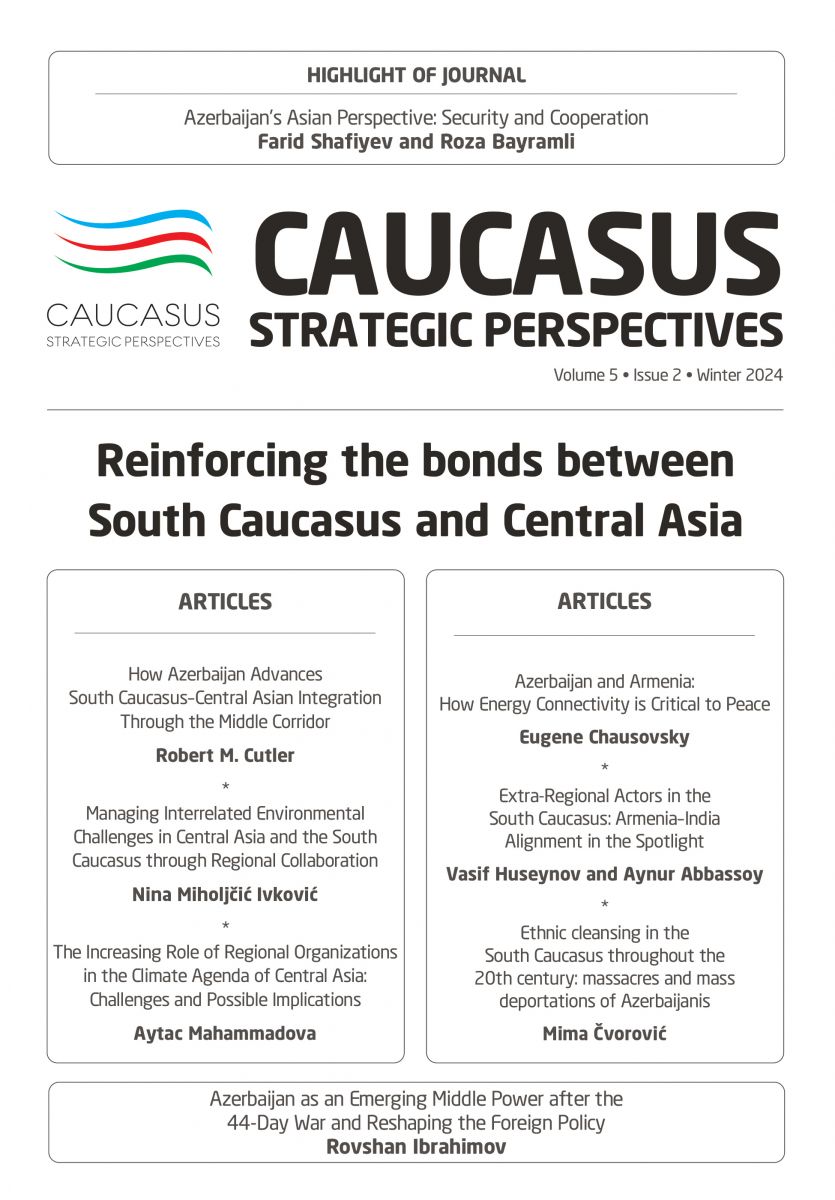How Azerbaijan Advances South Caucasus–Central Asian Integration Through the Middle Corridor
This article examines the evolving geoeconomic significance of the South Caucasus and Central Asia, with a particular focus on Azerbaijan’s emergence as a pivotal actor in the region. It begins by tracing the historical trajectory of the West’s interest in these regions, highlighting its recently renewed strategic focus there, which is driven by evolving global dynamics and competition among connectivity routes. Azerbaijan’s leadership in advancing the Middle Corridor is explored in detail, emphasizing its transformation from a conceptual framework to a significant logistical network supported by partnerships with Kazakhstan, Türkiye, and Uzbekistan. Subsequent sections analyse Azerbaijan’s infrastructure investments, including the Port of Alat and the Baku–Tbilisi–Kars (BTK) railway, alongside its cooperation with international financial institutions (IFIs) and the EU to address challenges like transit inefficiencies and bottlenecks. The discussion then turns to Azerbaijan’s expanding role within multilateral organizations, such as the Organization of Turkic States (OTS) and the UN’s Special Program for the Economies of Central Asia (SPECA), illustrating how these platforms amplify its regional influence. Finally, the article evaluates how Azerbaijan’s foreign policy, balancing with multiple partners, allows it to consolidate its middle-power status, and also reflects on the country’s broader impact on East–West trade and connectivity in the evolving global order.
Latest news
- 12/27/2024 Call for Submissions-Caucasus Strategic Perspectives, Volume 6, Issue 1, Summer 2025 680 views
Popular articles
- 07/18/2022 The Russia–Ukraine War: Perspective of Azerbaijan 4350 views
- 10/14/2020 The Non-Aligned Movement: In Pursuit of Validity and Relevance in the Contemporary Global Order 3323 views
- 10/14/2020 Vicious Circle of the South Caucasus: Intra-Regional Conflicts and Geopolitical Heterogeneity 3299 views
- 10/14/2020 Relevance of Non-Alignment for Azerbaijan’s Foreign and Security Policy 3029 views





